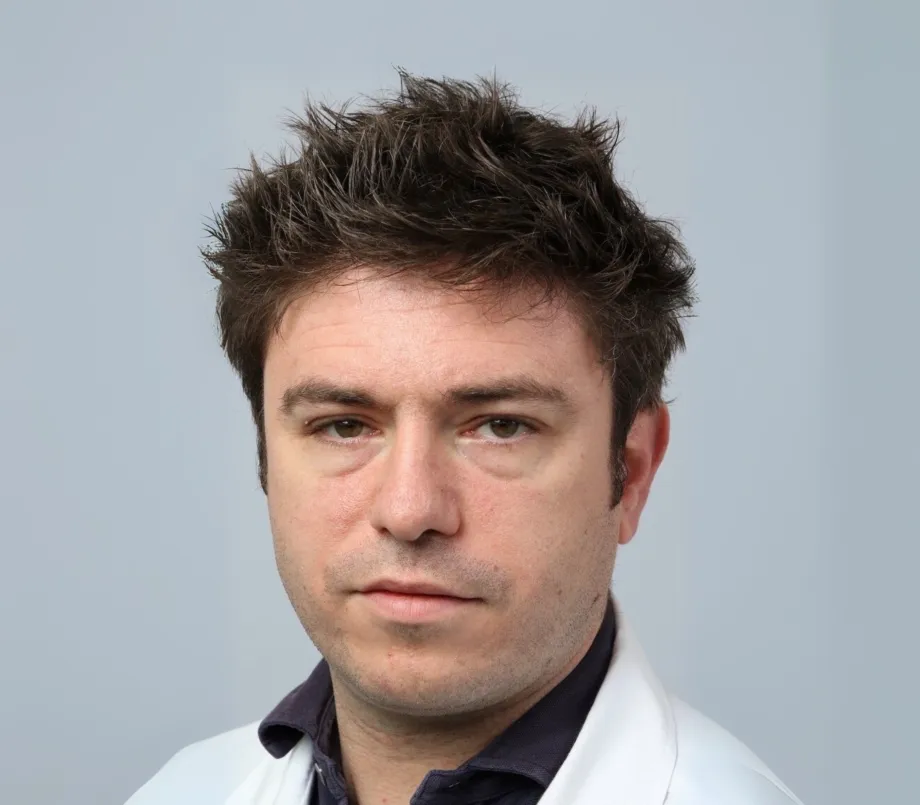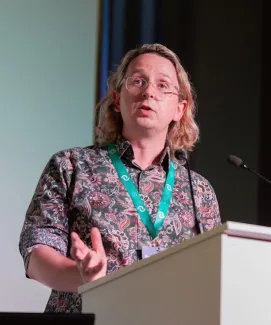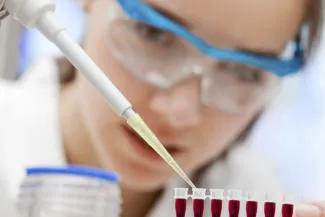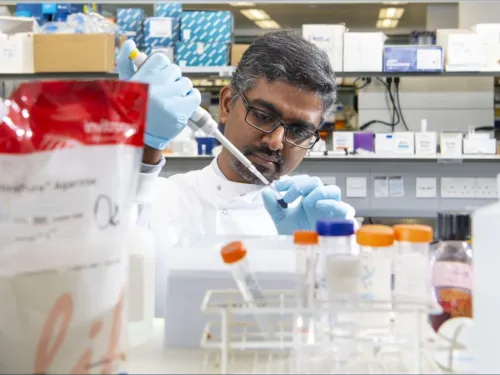This project was funded as part of an £800,000 investment into Ewing sarcoma research by CCLG Special Named Funds (#PearlPower, Kieran Maxwell Legacy, Rosie Rocks the World, and David Vernon’s Fund), the Bone Cancer Research Trust, the Ewing’s Sarcoma Research Trust and Great Ormond Street Hospital Charity.
Led by Dr Jonathan Fisher at the UCL Great Ormond Street Institute of Child Health, the project will find new ways to treat Ewing sarcoma that has spread to the lungs–one of the most difficult forms of the disease to treat.
Even intensive chemotherapy and radiotherapy often struggle to work for patients with bone cancer which has spread to their lungs, and these harsh treatments can cause serious long-term side effects. In many cases, the cancer cells become resistant to treatment, leaving families with even fewer options.
This new research is exploring immunotherapy, an approach that harnesses the body’s own immune system to fight cancer. Dr Fisher’s team are investigating a type of immune cell known as gamma-delta T cells (γδT cells), which they have already shown can kill bone cancer cells in the lab.
Unlike some immunotherapy approaches such as CAR T-cell therapy, which use a patient’s own cells, γδT cells can be taken from healthy donors and safely given to patients without causing a harmful immune reaction. This ‘off-the-shelf’ treatment offers a promising new option that could be delivered quickly and more cost-effectively to those who need it most.

Dr Jonathan Fisher
Dr Fisher’s team have already “demonstrated that genetically engineered γδT cells can effectively kill cancer cells in laboratory models of Ewing sarcoma when combined with cancer-targeting proteins”, he explained. “The aim of this current project is to enable targeting of the γδT cells to places other than the bones, specifically the lungs.”
The new project will investigate how the use of drugs known as ‘sensitising agents’ could guide immune cells to the lungs. These sensitising agents are designed to help the immune cells locate and attack tumours in specific parts of the body. While previous work focused on targeting bone, this study will explore how to sensitise immune cells to tumours in the lungs, where relapse most commonly occurs.
The team will also study how other types of cells found in the lungs may affect the success of the treatment, helping them fine-tune this innovative approach even further.
Dr Fisher said:
It's really important to develop new treatments that are not only less toxic, but that also help patients when their cancer has already spread as this is something that can severely affect outcomes. I would like to thank everyone at the charities and all of the incredible fundraisers who make this work possible.
Vicki Brunt, Head of Fundraising at CCLG, said:
We’re incredibly grateful to our Special Named Funds whose fundraising has supported this research. It represents an exciting opportunity to develop smarter, kinder treatments that could give young people with bone cancers a better chance of survival.



